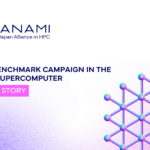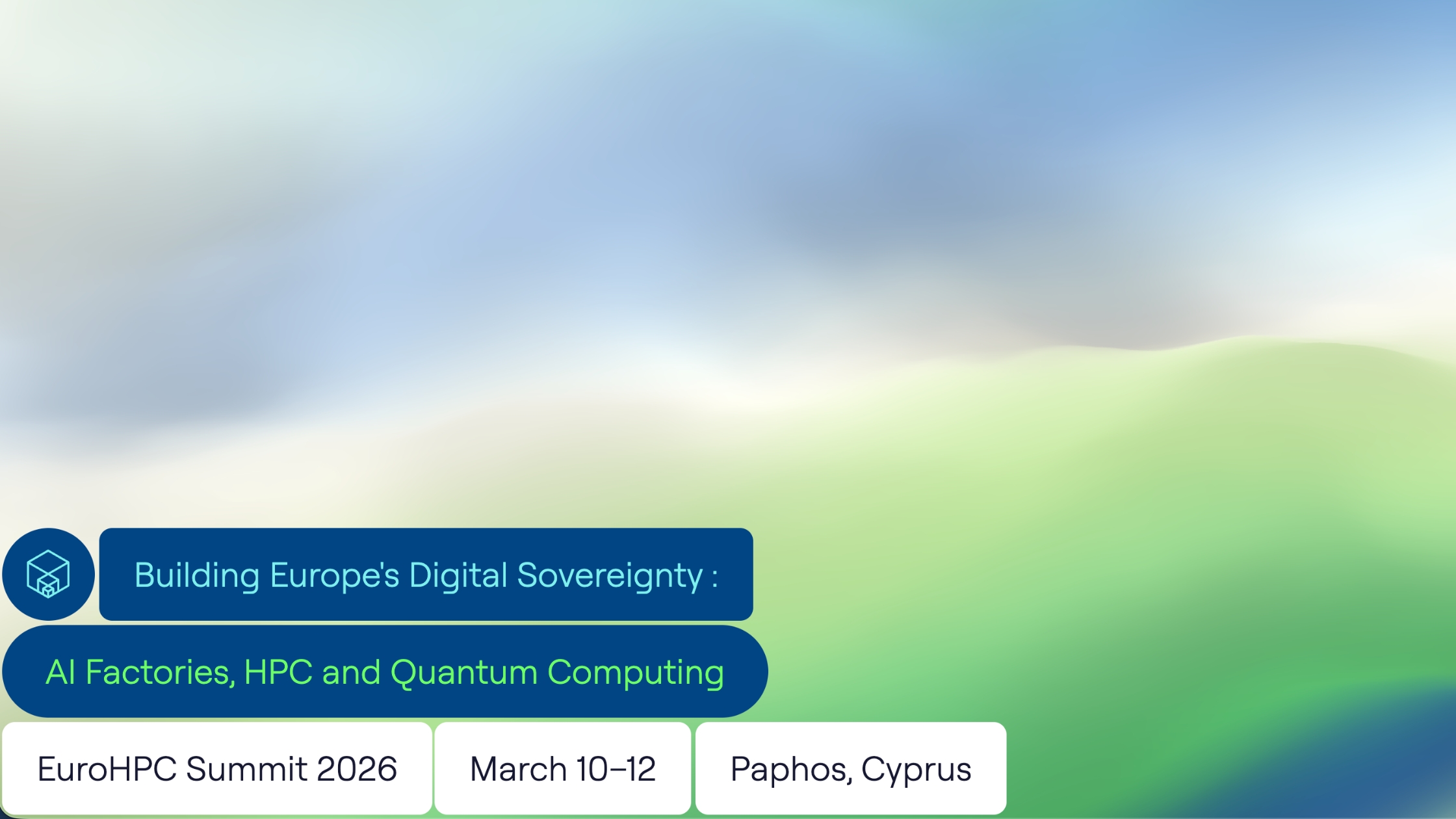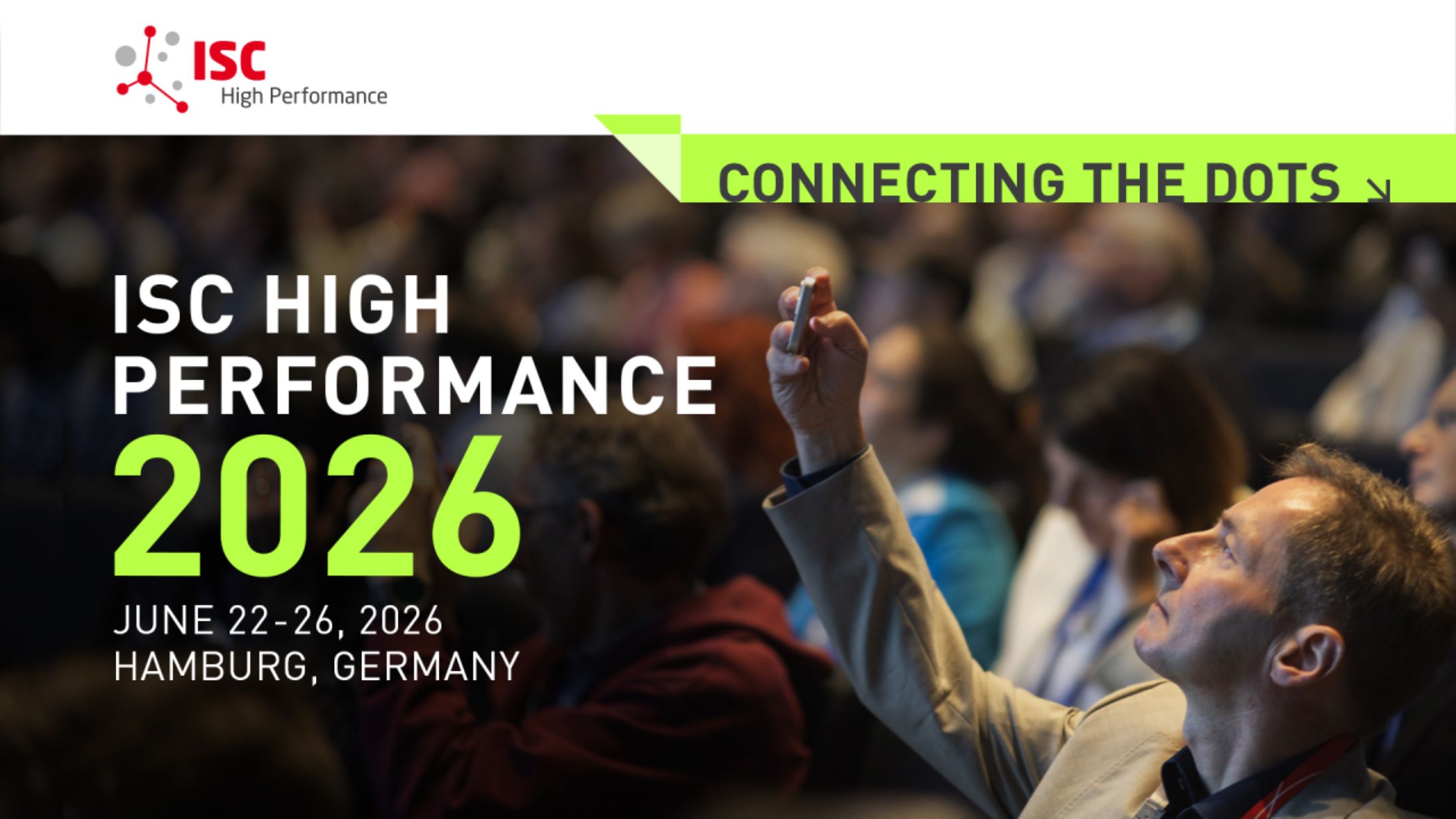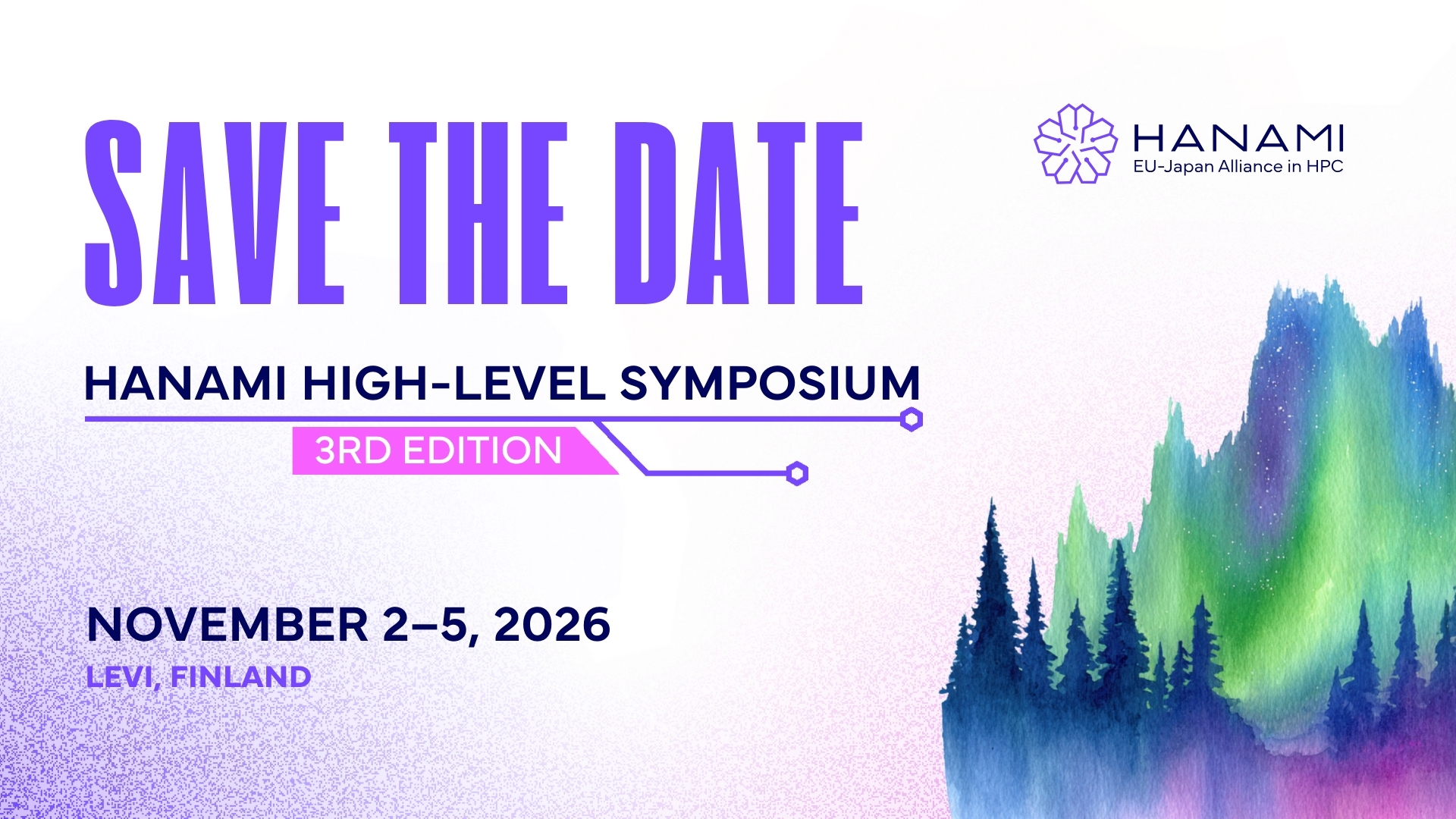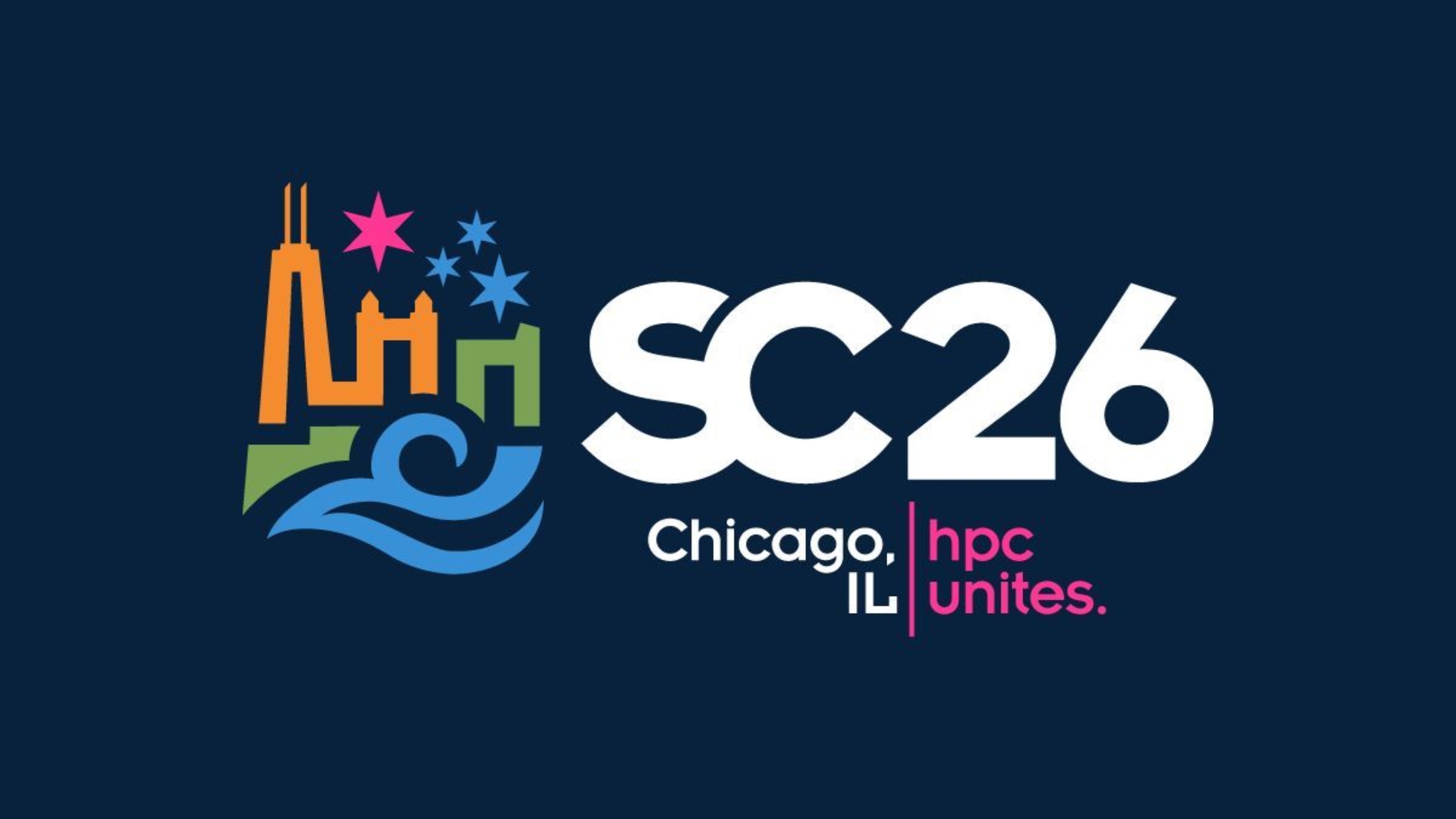Events
Information
Start:
2025/12/08
End:
2025/12/11
Location:
Chamonix, France
HANAMI High-Level Symposium | 2nd Edition
Following the first edition’s success, we are pleased to announce the second HANAMI High-Level Symposium on EU-Japan Collaboration in High-Performance Computing (HPC).
This event will bring together leading experts, policymakers, and researchers from Europe and Japan to discuss the latest advancements, challenges, and opportunities in HPC collaboration, with a special focus on scientific areas around climate, modelling, biomedical and materials science.
Date: December 8-11, 2025
Location: Chalet Hôtel Le Prieuré, Chamonix, France
The symposium will feature keynote speakers, panel discussions, and networking opportunities, fostering cooperation in cutting-edge HPC technologies and their applications across various industries.
Keynote Speakers
Materials Science
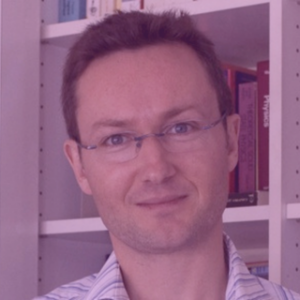
National Centre for Scientific Research (CNRS)
Xavier Blase holds his PhD in theoretical Physics from the University of California at Berkeley,followed by a postdoctoral experience at EPFL, Switzerland. He is presently CNRS Research Director at Institut Néel, Grenoble, France. His research focuses on the electronic and optical properties of systems relevant to condensed matter physics, materials sciences and physical chemistry, with much emphasis on methodological developments in the field of ab initio modelling based on the first principles of quantum mechanics. He is the initiator of the FIESTA code (Bull-Fourier prize 2014) that implements the many-body GW and Bethe-Salpeter formalisms with Gaussian basis sets, implementing embedded techniques for the study of disordered organic systems in large environments. He received the 2008 CNRS silver medal.
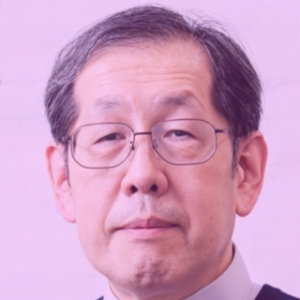
Emeritus Professor, University of Tsukuba, and Visiting Professor, Graz University of Technology
Kazuhiro Yabana obtained his PhD from Kyoto University in 1987. After serving as a postdoctoral researcher at Kyoto University, he joined Niigata University as an assistant professor in 1988. He moved to University of Tsukuba in 1999, and has been a professor, Center for Computational Sciences, University of Tsukuba, from 2004 to 2025. He retired from his professorship in 2025 and is currently Professor Emeritus at the University of Tsukuba and Visiting Professor at Graz University of Technology in Austria.
During his doctoral studies, he worked in the field of theoretical nuclear physics. In the mid-1990s, he pioneered real-time first-principles calculation for electronic dynamics in nanostructures and solids, applying a method developed in nuclear theory to solid-state density functional Hamiltonian. He currently works on cutting-edge topics in light-matter interaction, such as extreme nonlinear and ultrafast optics. He leads the development of an open-source software SALMON (Scalable Ab initio Light-Matter simulator for Optics and Nanoscience).
Biomedical Science

Premium Research Institute for Human Metaverse Medicine (WPI-PRIMe), University of Osaka
Ai Shinobu obtained her PhD in physical chemistry from the Hebrew University of Jerusalem, Israel. She held postdoctoral positions at the University of Tokyo, the Tokyo Institute of Technology, and RIKEN, before joining the University of Osaka, where she is currently a specially appointed associate professor at the Premium Research Institute for Human Metaverse Medicine (WPI-PRIMe). Her research focuses on large-scale molecular dynamics simulations of biological systems, with an emphasis on developing simulation protocols to explore molecular processes over long timescales. She is particularly interested in understanding how mutations and other perturbations influence molecular structure, dynamics, and function. She collaborates closely with experimental and clinical researchers, integrating simulations with data from biophysical, biochemical, and clinical studies. Her work also contributes to interdisciplinary efforts aimed at connecting molecular-level insights to cellular processes and disease mechanisms.
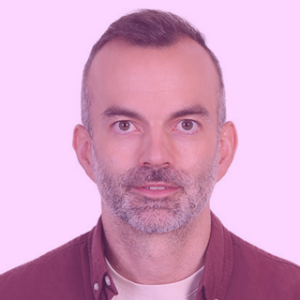
Data-Driven Fluid Engineering (DDFE) Laboratory, Inha University, Incheon, South Korea
Dr.-Ing. Mario Rüttgers is a visiting professor and postdoctoral researcher at the Data-Driven Fluid Engineering (DDFE) Laboratory, Inha University, Incheon, South Korea. He is supported by the Walter Benjamin Fellowship of the German Research Foundation (DFG). He received his doctoral degree from RWTH Aachen University in 2024, after conducting research at both the Jülich Supercomputing Centre (JSC), Forschungszentrum Jülich, and the Institute of Aerodynamics (AIA), RWTH Aachen University. Following his doctorate, he was a postdoctoral researcher at JSC funded by the HANAMI project, where he collaborated closely with researchers from RIKEN, Kobe, Japan. He continues to work with partners from RIKEN and JSC on the project Deep Neural Networks for CFD Simulations within the Joint Laboratory for Extreme Scale Computing (JLESC).
His research focuses on the intersection of machine learning, numerical methods, and High-Performance Computing (HPC) for bio-medical and smart city applications. These applications range from patient-specific diagnosis and treatment of respiratory and hemodynamic diseases, to drag-based route planning for unmanned aerial vehicles (UAVs) in urban environments, and the optimal placement and operation of urban wind turbines for sustainable energy production. Beyond applications, he (co-)develops computational methods and tools, including HydroGym, an open-source framework that couples reinforcement learning with CFD for flow control, and urbanFlowGen, a tool that automates the setup of CFD simulations in urban environments on large-scale HPC systems.
Climate and Weather Modelling
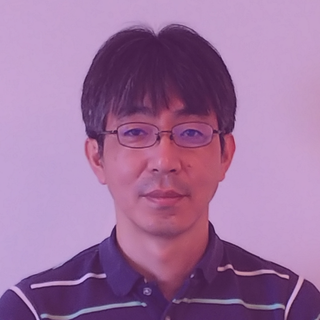
Team Leader of the Computational Climate Science Research Team at RIKEN’s Center for Computational Science
Dr. Hirofumi Tomita is a leading expert in computational climate science and atmospheric modeling, renowned for his pioneering work in geophysical fluid dynamics and large-scale climate simulations. He began his career as a Postdoctoral Researcher at the Frontier Research System for Global Change (1999–2002), focusing on geophysical fluid dynamics modeling. From 2002 to 2010, at JAMSTEC’s Frontier Research Center for Global Change, he made significant advances in atmospheric model development and the study of tropical cloud disturbances.
Since 2011, Dr. Tomita has served as Team Leader of the Computational Climate Science Research Team at RIKEN’s Center for Computational Science, where he leads innovative research on high-resolution climate modeling and simulation. Between 2014 and 2021, he also contributed as Deputy Project Leader for RIKEN’s Flagship 2020 (Fugaku) supercomputing project, fostering collaboration between application scientists and system developers. His work continues to advance the understanding of complex atmospheric processes and the development of next-generation climate models.
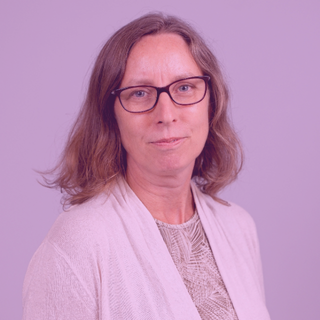
UK Met Office
Professor Helene Hewitt is a Met Office Science Fellow and visiting professor at the University of Southampton and University of Geneva. She is co-chair of the international Coupled Model Intercomparison Project which provides past and future simulations of climate from modelling centres around the world. She was a Coordinating Lead Author of the IPCC Sixth Assessment Report (where she co-led the chapter in Working Group I on Ocean, Cryosphere and Sea Level Change). Professor Hewitt studied Mathematics at Cambridge University and has a PhD in Physical Oceanography from the University of Southampton. She has worked at the Met Office Hadley Centre in the field of ocean and climate modelling for over 25 years – including leading the ocean modelling group, the polar climate group and the development of HadGEM3. She was awarded an OBE in 2023 for services to climate science.
Agenda
The specific agendas for the technical parallel sessions are also now available: Climate Session, Biomedical Science Session, and Materials Science Session.

